cnas
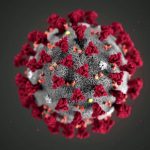
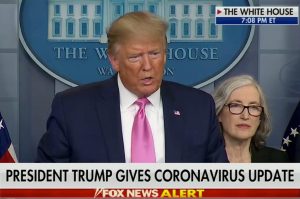 Finding ourselves in the middle of a global pandemic has placed many Americans, and in fact, most Americans, as well as the people of other countries, in a world suddenly changed. Will it be forever changed? Well, that remains to be seen. What we do know is that life as we knew it…just days ago for some of us, is nothing like it was before. We find ourselves being told to “stay at home” unless we happen to be one of the essential workers…doctors, nurses, CNAs and other hospital workers, grocery store employees, restaurant workers (who can only handle pick-up or delivery orders, because the dining rooms are closed), first responders (police, fire, and ambulance), necessary city or town workers (including, of course, government officials), mail carriers, truck drivers and delivery people. The rest of us are supposed to stay home accept for getting food, groceries, medicine, gasoline, medical appointments, and outdoor exercise…all while practicing social distancing (staying 6 feet away from other people). That, of course, means no hugging, hand shaking, high fives, elbow bumps or even foot taps, which had prior become the new normal. Many people are wearing masks and of course, washing their hands and using hand sanitizer, and not touching their faces.
Finding ourselves in the middle of a global pandemic has placed many Americans, and in fact, most Americans, as well as the people of other countries, in a world suddenly changed. Will it be forever changed? Well, that remains to be seen. What we do know is that life as we knew it…just days ago for some of us, is nothing like it was before. We find ourselves being told to “stay at home” unless we happen to be one of the essential workers…doctors, nurses, CNAs and other hospital workers, grocery store employees, restaurant workers (who can only handle pick-up or delivery orders, because the dining rooms are closed), first responders (police, fire, and ambulance), necessary city or town workers (including, of course, government officials), mail carriers, truck drivers and delivery people. The rest of us are supposed to stay home accept for getting food, groceries, medicine, gasoline, medical appointments, and outdoor exercise…all while practicing social distancing (staying 6 feet away from other people). That, of course, means no hugging, hand shaking, high fives, elbow bumps or even foot taps, which had prior become the new normal. Many people are wearing masks and of course, washing their hands and using hand sanitizer, and not touching their faces.
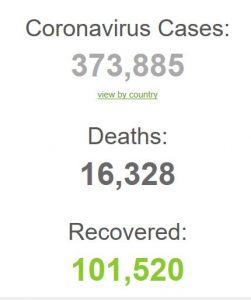
Many of these things are common sense, and some are things we have done for a while now, but other things are so new and very foreign to us. We are a mobile society, and staying home is very foreign to us. Schools and daycares are closed, making it difficult for the essential workers with children to get to work. Parents who never considered home-schooling, are forced to do so, as many schools will not open for the remainder of the school year. Non-essential workers find themselves working from home (if their jobs can feasibly allow that). The streets are almost deserted, and we find ourselves wondering if the few people we see out, have a legitimate reason to be out, or if they had simply gone rogue. Normally we care little for the goings on of other people on the street, and we are used to many people going many places. Most of us hardly notice the people around us going about their daily commutes or errands. We were too busy with our own lives to care about what others were doing. Now, however, we find ourselves looking at the people who are out and about, wondering if they really should be more responsible and stay at home.
As pandemics do, this one too shall pass, but what of our country. Will we start to be more caring for others? Will we work to get closer to our families, neighbors, and friends? Will we suddenly know that we can use a lot less of things that we may have been wasteful with before? Will we continue to pray over people and say things like “God Bless America,” or are these things just something we do because we have been caught up in the 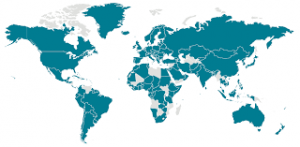 moment? Or will we, like so many times before, forget about all this a year from now? It is my hope that we will step up and make some permanent changes in our lives. The people of the earth have maybe been very selfish, thinking only of ourselves and those we care about, but maybe we shouldn’t be that way. Life as we knew it changed with COVID19’s entrance on the world stage. What we do next will determine how history views the generations of people alive today. Will we be viewed as reckless and unfeeling, or will we be viewed as the most amazing generation ever to deal with a global disaster? The outcome really depends on us.
moment? Or will we, like so many times before, forget about all this a year from now? It is my hope that we will step up and make some permanent changes in our lives. The people of the earth have maybe been very selfish, thinking only of ourselves and those we care about, but maybe we shouldn’t be that way. Life as we knew it changed with COVID19’s entrance on the world stage. What we do next will determine how history views the generations of people alive today. Will we be viewed as reckless and unfeeling, or will we be viewed as the most amazing generation ever to deal with a global disaster? The outcome really depends on us.

 You hear it a lot, especially on television shows. Doctors, nurses, police, firefighters, and paramedics are all told not to get personally involved. Those who instruct them not to get personally involved with their ill patients are, of course, trying to protect them from the inevitable grief of losing a patient, but being on the other side of that equation, I must say that when they do get personally involved, it is better for all.
You hear it a lot, especially on television shows. Doctors, nurses, police, firefighters, and paramedics are all told not to get personally involved. Those who instruct them not to get personally involved with their ill patients are, of course, trying to protect them from the inevitable grief of losing a patient, but being on the other side of that equation, I must say that when they do get personally involved, it is better for all.
For one thing, I think that most of the time, it is impossible for one human being, taking care of another human being, not to become personally involved. Because of their training, these professionals try not to get too close, but I don’t think many succeed, even when they only have a patient for a few days or even minutes. Sometimes it’s not so much the patient that tugs at there hearts, but rather the worried family members who are in need of comfort. For most family members there is nothing more helpful than an encouraging word, and yes, even a hug, when things seem to be falling apart.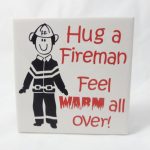
In the years that I have taken care of my parents, my in-laws, my sister-in-law, and my husband, I have had more than my share of dealings with ambulance and fire department EMTs, as well as doctors, nurses, and CNAs. The ones I remember the most, were the ones who got personally involved. They knew when my worried spirit needed a hug…just so I could stay on my feet. There is nothing more important, than the moments when the ambulance crew has loaded up your loved one, and you are left in the house with the fire department EMTs in your living room picking up their gear. You suddenly realize that your loved on is in the hands of someone else. You can’t do anything more to help. You find yourself just standing there feeling very much alone, and suddenly very small. I guess I must have looked very fragile at those moments, because invariably, one of those wonderful firemen put their arms around me, and told me that everything was going to be ok. It doesn’t matter how big or small the firefighter was, him standing there in those bunkers made him feel very 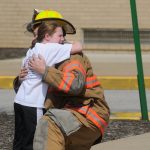
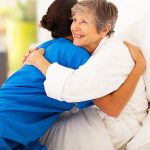 substantial. Those strong arms around me, allowing me to cry, made all the difference. I don’t know how that hug affected the firefighter, but I know that after one of those big hugs from that angel of a firefighter, I was able to wipe away my tears, pull myself up by the bootstraps, and head to the hospital, where I was needed to answer questions about my loved one’s health…questions that would make it easier for the doctors and nurses to give my loved ones better care, so they can save their lives. Sometimes, the first responders make the most difference…and that can make all the difference.
substantial. Those strong arms around me, allowing me to cry, made all the difference. I don’t know how that hug affected the firefighter, but I know that after one of those big hugs from that angel of a firefighter, I was able to wipe away my tears, pull myself up by the bootstraps, and head to the hospital, where I was needed to answer questions about my loved one’s health…questions that would make it easier for the doctors and nurses to give my loved ones better care, so they can save their lives. Sometimes, the first responders make the most difference…and that can make all the difference.
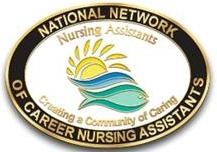 Since I was a caregiver for 13 years before the passing of the last of my parents and in-laws early in January of this year, I can tell you that being a caregiver, or a CNA is a big job that often gets very little recognition. Many people don’t really have any desire to do such a job, but because they remain in caregiving positions, Career Nursing Assistants provide predictability and stability to care, which in turn enhances the feeling of security for our aging, frail, or chronically challenged population. CNAs also bring wisdom, patience, humor, and a general attitude of caring to the daily lives of the residents in their care.
Since I was a caregiver for 13 years before the passing of the last of my parents and in-laws early in January of this year, I can tell you that being a caregiver, or a CNA is a big job that often gets very little recognition. Many people don’t really have any desire to do such a job, but because they remain in caregiving positions, Career Nursing Assistants provide predictability and stability to care, which in turn enhances the feeling of security for our aging, frail, or chronically challenged population. CNAs also bring wisdom, patience, humor, and a general attitude of caring to the daily lives of the residents in their care.
Today is National Career Nursing Assistants Day. It is a day founded by the National Network of Career Nursing Assistants to promote recognition, education, research, advocacy and peer support development for nursing assistants in nursing homes and other long-term care settings. This is especially close to my heart for a number of reasons, such as the care given to my parents and in-law, but 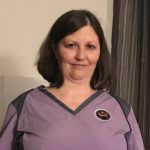 most recently because my daughter, Corrie Petersen is now a CNA working toward her degree as a nurse. She currently works at Elkhorn Rehabilitation Hospital in Casper, Wyoming, and we couldn’t be more proud of her. Having been a caregiver, I can tell you that the work that CNAs do is vital to the well-being of their patients, whether in a nursing home facility, a physical therapy facility (which is where my daughter works), at the patient’s home, or in hospice facilities.
most recently because my daughter, Corrie Petersen is now a CNA working toward her degree as a nurse. She currently works at Elkhorn Rehabilitation Hospital in Casper, Wyoming, and we couldn’t be more proud of her. Having been a caregiver, I can tell you that the work that CNAs do is vital to the well-being of their patients, whether in a nursing home facility, a physical therapy facility (which is where my daughter works), at the patient’s home, or in hospice facilities.
According to the National Network of Career Nursing Assistants, “Nursing Assistants are the best thing about ‘caring.'” Nursing Assistants “Brighten Lives” according to Dawn Silva, CNA, New Hampshire, and member “Safe Patient Handling” committee. As more and more people are living longer, caring for the elderly has become more and more vital. With that care comes an increased focus on the people who care for the elderly…largely 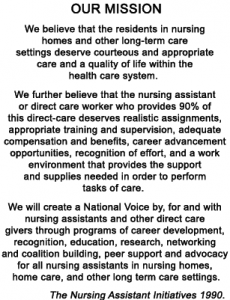 nurses and CNAs. It’s a noble occupation. While the work is hard, and what some might consider demeaning, the sense of peace it gives the patients makes being a CNA worth it.
nurses and CNAs. It’s a noble occupation. While the work is hard, and what some might consider demeaning, the sense of peace it gives the patients makes being a CNA worth it.
Every CNA is a blessing to those they care for and the nursing staff they work with. They support the facility they work in and the patients they care for. They bring a smile to the faces of their patients, and the patients are grateful for the help they receive. I don’t know of a facility out there that could run effectively without its CNAs, and I know how hard it is when a facility is shorthanded on CNAs. It makes everything harder for everyone working there, and especially harder on the patients who depend on them every day. Today is National Career Nursing Assistants Day. I am very proud of my daughter, Corrie Petersen, and of all the other CNAs I know. Thank you all for the work you do. Have a wonderful day, each and every one of you!! Happy National Career Nursing Assistants Day!!
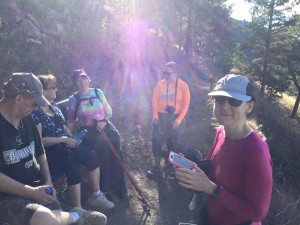 For most of my life, I can say that I had never broken a bone. but on October 18, 2015, all that changed. As my associates, Jim Stengel and Carrie Beauchamp said, I have now “joined the Broken Bone Club” and that the only membership dues was to have broken a bone somewhere in the body. I didn’t really ever want to join this club to be honest. I think they view me as an overachiever though, because as everyone has told me, I did a bang up job on my shoulder. I was on a simple hike on Casper Mountain’s Bridle Trail to celebrate the victorious journey to health of my sister-in-law, Brenda Schulenberg, who had become ill two years to the day, and had gone on to make an amazing recovery. I suppose that it is true that I did a bang up job on my shoulder, in that you almost never see a break like this one, unless it was a bad car accident, or a bad fall. The fall itself wasn’t that bad, but the bone did break on impact. It was the twisting movement that happened after the break that caused the ball of my shoulder joint to twist a quarter turn in the socket, thus requiring surgery, including a plate and nine screws, to be necessary to make the repairs. That surgery was a week ago, and I have learned so much in that one very long week.
For most of my life, I can say that I had never broken a bone. but on October 18, 2015, all that changed. As my associates, Jim Stengel and Carrie Beauchamp said, I have now “joined the Broken Bone Club” and that the only membership dues was to have broken a bone somewhere in the body. I didn’t really ever want to join this club to be honest. I think they view me as an overachiever though, because as everyone has told me, I did a bang up job on my shoulder. I was on a simple hike on Casper Mountain’s Bridle Trail to celebrate the victorious journey to health of my sister-in-law, Brenda Schulenberg, who had become ill two years to the day, and had gone on to make an amazing recovery. I suppose that it is true that I did a bang up job on my shoulder, in that you almost never see a break like this one, unless it was a bad car accident, or a bad fall. The fall itself wasn’t that bad, but the bone did break on impact. It was the twisting movement that happened after the break that caused the ball of my shoulder joint to twist a quarter turn in the socket, thus requiring surgery, including a plate and nine screws, to be necessary to make the repairs. That surgery was a week ago, and I have learned so much in that one very long week.
It has been just ten days since my life was turned upside down, and I went from being a caregiver to a care 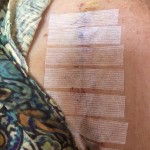 receiver. What a shock to my system that was. My mind does not really like the concept of needing help with my daily needs. Nevertheless, that has become the case. I am very thankful to the group of experienced people I had with me at the time of my fall. My sister-in-law, Jennifer Parmely is a nurse, and a friend of my sister-in-law, Brenda Schulenberg, Laura Murray is a physical therapist, The two of them immediately set about making a sling out of a Laura’s dog’s leash and Jennifer’s handkerchief. Jennifer’s boyfriend, Brian Cratty is an prior life flight pilot, and my husband, Bob Schulenberg and sister-in-law, Brenda are experienced caregivers. As I was laying on the ground trying to control the feeling of needing to pass out, two CNAs, who’s names I do not know, unfortunately, came up behind us and helped get me to my feet, and fashion a gait belt for me out of a sweatshirt, so I could walk the last three quarters of a mile to finish the hike and go to the hospital. I could not have asked for a better group of people to have with me…if I just had to break my shoulder.
receiver. What a shock to my system that was. My mind does not really like the concept of needing help with my daily needs. Nevertheless, that has become the case. I am very thankful to the group of experienced people I had with me at the time of my fall. My sister-in-law, Jennifer Parmely is a nurse, and a friend of my sister-in-law, Brenda Schulenberg, Laura Murray is a physical therapist, The two of them immediately set about making a sling out of a Laura’s dog’s leash and Jennifer’s handkerchief. Jennifer’s boyfriend, Brian Cratty is an prior life flight pilot, and my husband, Bob Schulenberg and sister-in-law, Brenda are experienced caregivers. As I was laying on the ground trying to control the feeling of needing to pass out, two CNAs, who’s names I do not know, unfortunately, came up behind us and helped get me to my feet, and fashion a gait belt for me out of a sweatshirt, so I could walk the last three quarters of a mile to finish the hike and go to the hospital. I could not have asked for a better group of people to have with me…if I just had to break my shoulder.
While that group was amazing, and I owe then more than I can ever repay, it has been something within my self that I have found to be equally amazing, since my fall. It is the power I have in my right arm…the power of one, as I call it. People do not think about how many things take the use of both arms to do. When you are down to one arm, you find out just how strong…or weak it is. Thankfully for me, it was my non-dominate arm that suffered the break. My power of one level would have been far less successful had it been my dominate arm that suffered the break. Still, my right arm, which is the dominate arm, did have to be retrained. There 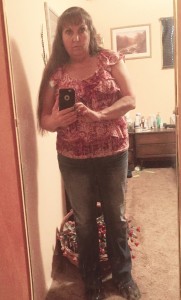 were things that I simply could not do without assistance at first, but in my minds refusal to truly be a care receiver, I continued to think of ways and try to do things one handed, if I could find a way. In less than a day, I was able to put my contacts in one handed, with just the assistance of my teeth to open the container of my dailies lenses.
were things that I simply could not do without assistance at first, but in my minds refusal to truly be a care receiver, I continued to think of ways and try to do things one handed, if I could find a way. In less than a day, I was able to put my contacts in one handed, with just the assistance of my teeth to open the container of my dailies lenses.
In less than a week I could dress myself, including jeans, for which I fashioned a way to button them with a ribbon and minimal help from my left hand. I figured our ways to get my shoes and socks on one handed too. I did makeup one handed and brushed my hair one handed. I typed my stories one handed, and even lifted my laptop onto my lap one handed. While there were a number of things I couldn’t do one handed, I must say, I’m surprised at the things I could. We don’t often think about how important it is to have both hands to perform our daily tasks, until we don’t have both hands. Having the use of just one arm is a set back to be sure, and a serious inconvenience, but after spending the last ten days in just that predicament, I can also say that I am very much amazed at the power of my one arm.

